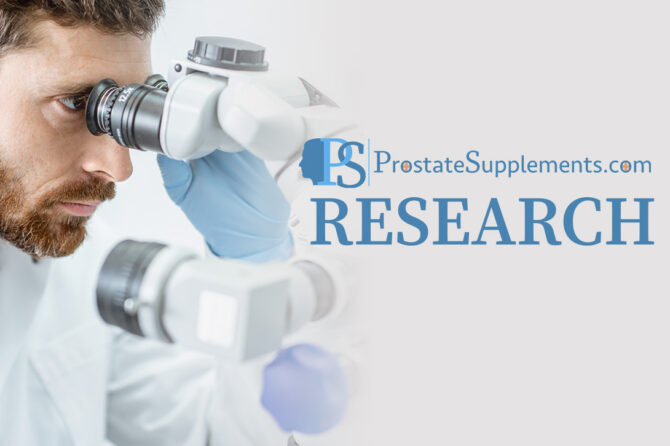
Astaxanthin: A Comprehensive Review of its Health Benefits, with a Focus on Men’s Health
Astaxanthin is a naturally occurring pigment belonging to the carotenoid family, known for its vibrant red color. It is synthesized by microalgae, fungi, and certain marine organisms, such as salmon, shrimp, and krill, which accumulate astaxanthin through their diet. Astaxanthin exhibits remarkable antioxidant activity, surpassing other well-known antioxidants like beta-carotene and vitamin E. In addition to its antioxidant properties, astaxanthin has demonstrated potent anti-inflammatory effects, making it a promising candidate for various health applications.
Abstract
Astaxanthin, a naturally occurring carotenoid pigment found primarily in marine organisms, has garnered increasing attention in recent years due to its potent antioxidant and anti-inflammatory properties. This comprehensive review aims to explore the diverse health benefits of astaxanthin, with a particular focus on its implications for men’s health. The article discusses its mechanisms of action, sources, ingestion methods, and potential therapeutic applications in various health conditions, including cardiovascular health, exercise performance, cognitive function, and reproductive health. Additionally, this review examines the safety profile of astaxanthin supplementation and highlights areas for future research.
Mechanisms of Action
Astaxanthin exerts its therapeutic effects through multiple mechanisms. As a potent antioxidant, it scavenges free radicals and reactive oxygen species (ROS), thereby protecting cells and tissues from oxidative damage. Moreover, astaxanthin possesses the ability to modulate various signaling pathways involved in inflammation, including nuclear factor-kappa B (NF-κB) and mitogen-activated protein kinase (MAPK) pathways. By inhibiting pro-inflammatory cytokines and mediators, astaxanthin helps mitigate inflammation and its associated pathologies.
Sources of Astaxanthin
Natural sources of astaxanthin include microalgae (e.g., Haematococcus pluvialis), salmon, trout, shrimp, crab, and lobster. Commercially, astaxanthin supplements are derived from microalgae or synthesized through chemical processes. Astaxanthin obtained from microalgae is considered the most sustainable and environmentally friendly source.
Health Benefits of Astaxanthin
- Cardiovascular Health: Astaxanthin has been shown to improve various cardiovascular risk factors, including lipid profiles, blood pressure, and endothelial function. Its antioxidant and anti-inflammatory properties help protect against atherosclerosis, reduce oxidative stress, and promote vascular health.
- Exercise Performance: Astaxanthin supplementation has been reported to enhance endurance, reduce muscle damage, and improve recovery following strenuous exercise. It may exert these effects by attenuating exercise-induced oxidative stress and inflammation, thereby supporting optimal physical performance.
- Cognitive Function: Emerging evidence suggests that astaxanthin may benefit cognitive function by protecting neurons from oxidative damage, reducing neuroinflammation, and promoting neuroplasticity. These neuroprotective effects hold potential implications for the prevention and management of neurodegenerative diseases, such as Alzheimer’s disease.
- Reproductive Health: Astaxanthin has been investigated for its role in male reproductive health, particularly in improving sperm quality and fertility. Studies have shown that astaxanthin supplementation may enhance sperm motility, morphology, and antioxidant capacity, thereby supporting male fertility.
Ingestion Methods
Astaxanthin is available in various formulations, including softgel capsules, tablets, and powders. The recommended dosage typically ranges from 4 to 12 mg per day, although higher doses may be warranted for specific therapeutic purposes. It is advisable to consume astaxanthin supplements with meals containing dietary fat to enhance absorption.
Safety Considerations
Astaxanthin is generally well-tolerated, with few reported adverse effects at recommended doses. However, individuals with allergies to seafood or other marine products should exercise caution when using astaxanthin supplements. Pregnant and lactating women should consult healthcare professionals before supplementation.
Conclusion
In conclusion, astaxanthin represents a promising natural compound with diverse health benefits, particularly in the context of men’s health. Its potent antioxidant and anti-inflammatory properties make it a valuable adjunct in the prevention and management of various health conditions, ranging from cardiovascular disease to cognitive decline and male infertility. Further research is warranted to elucidate its mechanisms of action, optimal dosage, and long-term effects in different population groups. Nonetheless, current evidence supports the inclusion of astaxanthin as part of a holistic approach to promoting overall health and well-being.
Leave a reply

Leave a reply